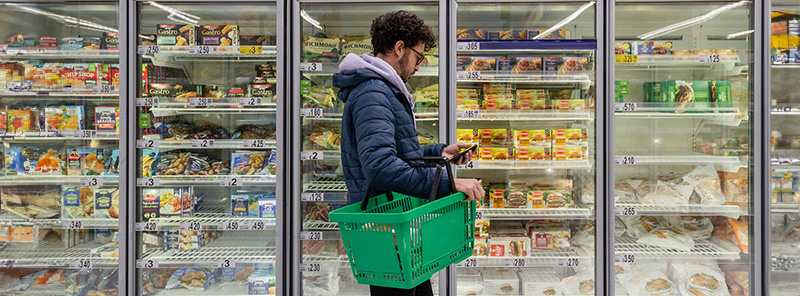Many students dream of leaving their home country to study in the UK. After all, it has one of the best reputations for quality education in the world. But how much does it cost?
When you add up tuition fees, accommodation and living expenses, studying abroad could be one of the biggest career investments you will ever make – so it requires careful thought and planning. Below is our guide to the cost of living in the UK, including handy tips for creating a realistic budget you’ll actually be able to stick to.
Tuition fees
The largest chunk of your education fund usually goes on your course fees. The amount varies depending on your study level, subject and university. For example, it’s cheaper to study humanities than medicine – and it’s more expensive to study at Oxford or Cambridge than Queen’s University Belfast or the University of Stirling.
Pathway course fees
Some international students need to take a pathway program or English course before they can enroll at university. The price range for a 1-year program is around £15,250–£26,500 depending on the pathway and the course length. If you wish to take an English course online or on campus, you can expect to pay £2,950–£5,250.
Check out INTO’s pathway programs and English courses to secure your place at university in the UK.
Undergraduate degree tuition fees
An undergraduate degree in the UK typically involves 3 years of full-time study – although some may take longer, like medicine and dentistry. It’s also important to note that undergraduate degree programs in Scotland typically last for four years. You can expect to pay between £10,000 and £26,000 annually for an undergraduate degree. An undergraduate medical degree can cost international students up to £68,000 per year.
As these fees vary by course and institution, it’s best to research your options first. To begin, you can explore INTO’s university partners and the courses they offer.
Master’s degree tuition fees
Many international students choose to continue their studies in the UK after their undergraduate degree. A UK Master’s degree only takes one year of full-time study to complete, compared to the 2-year study period required in other countries. For an international postgraduate program, you can expect to pay between £9,000–£30,000 or an average of £17,109.
Some students also take a Pre-Master’s course, a program specially designed to provide them strong academic foundation and English skills before they begin their Master’s degree.
Depending on the center, INTO offers Pre-Master’s program focusing on academic subjects for a particular field of study which usually lasts for 6 months to one year. Pre-Master’s tuition fee may vary from £11,325–£25,695.
There are also short Pre-Master’s programs available at the University of Stirling which run only for 3 to 6 months. This course helps students improve their English and study skills and prepare them for postgraduate research. Short Pre-Master’s program tuition fees range from £7,495–£10,995.
Top tip: Remember to allocate money for other expenses like textbooks, printing and other essential school supplies.

Accommodation
Your home away from home is likely to be the second largest expense after tuition fees. Most students choose to live in their university’s residences or privately-owned student halls, while others rent a room in a house owned by a private landlord.
The cost of accommodation depends on your room type and the facilities and services your provider offers. Most dedicated student accommodation includes utilities such as gas, electricity, water and Wi-Fi – but in a shared house, you’ll usually have to pay extra on top of the rental fee.
Your university’s location will also affect your accommodation costs. Comparatively, rent is cheaper in Lancaster or Newcastle than in London or Oxford. You can expect to pay more in South East (especially London) or South West England than elsewhere in the UK.
INTO Centers in the University of East Anglia, the University of Exeter and Newcastle University campuses offer comfortable and secure student residences with complete facilities such as laundry room and kitchen. Plus, no additional fees for utilities including Wi-Fi, electricity, gas and water.
Living costs
On average, you may spend around £1,300–£1,400 per month in London or £900–£1,300 in the rest of the UK to cover accommodation, bills, groceries, and other living expenses during your studies.
Your location will affect your daily living expenses, as they vary a lot from city to city. Generally, the cost of living is lower in the North of England, such as Newcastle or Manchester, than in the South. And it’s even cheaper in cities outside of England like Stirling or Belfast.
To compare, here’s a list of commonly purchased items and their prices* per city.
| London | Exeter | Manchester | Lancaster | Newcastle | Stirling | Belfast | |
| Dining out | £18 | £12 | £15 | £11.50 | £13 | £12 | £15 |
| Weekly grocery shop | £44 | £34 | £38 | £39 | £39 | £36 | £37 |
| Cappuccino (regular) | £3.50 | £3.50 | £3 | £3 | £3 | £2.75 | £3 |
| Cinema ticket | £12 | £9 | £10 | £7 | £8 | £4.50 | £9 |
| University accommodation (per week) | £231 | £106 | £117 | £130 | £95–195 | £90 | £153 |
*Costs are estimates and are provided for illustrative purposes only. Sources include Numbeo.com 2023.
Top tip: Get the most out of your money by asking for student discounts and comparing prices. Read these money-saving hacks to learn more.
Other costs
Your UK student visa, which allows you to study in the UK, will cost you around £490. There’s also a surcharge of £235–£470 depending on how long you’ll be staying. Take note: this charge is based on your entire stay in the UK – not just the duration of your studies.
To lessen your study duration and save money, INTO also offers study abroad programs that combine an undergraduate pathway with a UK undergraduate degree in a single study plan at our selected centers. If you choose this program, you will receive an iCAS (integrated Confirmation of Acceptance for Studies (CAS)), meaning you can apply for one visa for the full duration of the program.
If you stay in the UK for more than 6 months, you’ll also need to pay the £776 Immigration Health Surcharge each year. This will give you access to the National Health Service.
Your study abroad journey wouldn’t be complete without experiencing life in the UK – so make sure to include “fun money” in your monthly budget. This will mean you can explore your local area, taste delicious British dishes, go to concerts or take trips with your new friends on weekends.
Financial support
Student visa holders are also allowed to work for up to 20 hours per week during term time, so many choose to take a part-time job alongside their studies. You may also be allowed to work full-time during holidays or study breaks. Visit the UKCISA website to know more about the work hours and the types of jobs you can do.
Studying abroad can be financially overwhelming, but there is support available. Check whether there are scholarships available to reduce your tuition fee costs before you submit your application. In fact, INTO gives about £10 million per year to high-achieving students globally. Learn how you can qualify for an INTO scholarship here.
Now that you’ve learned everything you need to know about the cost of studying in the UK, it’s time to decide which university is right for you. The choice is yours! But one thing’s for sure: whether you go for a countryside campus or a bustling city, you’re guaranteed a once-in-a-lifetime study abroad adventure!
You can follow us on Facebook, Twitter, Instagram, LinkedIn, YouTube and TikTok.
